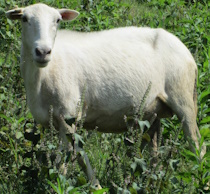- Home
- About St. Croix Sheep
- Sheep for Sale
- Contact Us
- Videos
- Why Winter Lambing is Best!
- Too Cold for Winter Lambs?
- Get Rich Selling Sheep?
- No Large Sheep Farms
- Let Nature Cull
- Raising Commercial Sheep
- Scientific Study
- Never Use Lambing Pens
- Rams and Ewes Together
- One Ram with 30 Ewes Causes Inbreeding
- A Natural Solution for Scours
- When Will Sheep Dewormers Fail?
- Small Flock Inbreeding
- Articles

Chemical Free St. Croix Sheep
The Right Breed for TN
Pure Natural Sheep™
St. Croix Sheep For Sale
No Dewormers, No Vaccinations, No Antibiotics, No Hormones, No Chemicals
Established 2009
1857 Brindley Hollow Rd. Buffalo Valley, TN
Click Here to Send Us Email
Pure
Natural
Sheep™

Pure Natural St. Croix Sheep
Never Needs Deworming
St. Croix Sheep For Sale
No Dewormers, No Vaccinations, No Antibiotics, No Hormones, No Chemicals
Established 2009
1857 Brindley Hollow Rd. Buffalo Valley, TN
Click Here to Send Us Email
Pure Natural Sheep™
St. Croix Sheep For Sale
No Dewormers, No Vaccinations, No Antibiotics, No Hormones, No Chemicals
Established 2009
1857 Brindley Hollow Rd. Buffalo Valley, TN